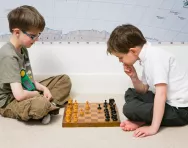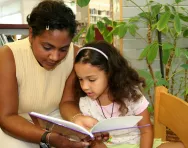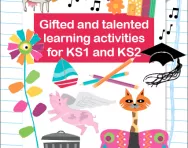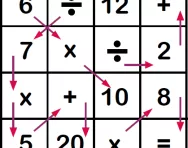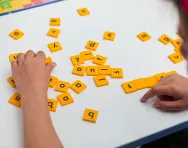Important update from TheSchoolRun
For the past 13 years, TheSchoolRun has been run by a small team of mums working from home, dedicated to providing quality educational resources to primary school parents. Unfortunately, rising supplier costs and falling revenue have made it impossible for us to continue operating, and we’ve had to make the difficult decision to close. The good news: We’ve arranged for another educational provider to take over many of our resources. These will be hosted on a new portal, where the content will be updated and expanded to support your child’s learning.
What this means for subscribers:
- Your subscription is still active, and for now, you can keep using the website as normal — just log in with your usual details to access all our articles and resources*.
- In a few months, all resources will move to the new portal. You’ll continue to have access there until your subscription ends. We’ll send you full details nearer the time.
- As a thank you for your support, we’ll also be sending you 16 primary school eBooks (worth £108.84) to download and keep.
A few changes to be aware of:
- The Learning Journey weekly email has ended, but your child’s plan will still be updated on your dashboard each Monday. Just log in to see the recommended worksheets.
- The 11+ weekly emails have now ended. We sent you all the remaining emails in the series at the end of March — please check your inbox (and spam folder) if you haven’t seen them. You can also follow the full programme here: 11+ Learning Journey.
If you have any questions, please contact us at [email protected]. Thank you for being part of our journey it’s been a privilege to support your family’s learning.
*If you need to reset your password, it will still work as usual. Please check your spam folder if the reset email doesn’t appear in your inbox.
How to extend a highly able child, subject by subject

Although there's no formal definition of a gifted and talented, highly able or more/most able pupil - all terms you might hear applied to your child - a parent's instincts are often correct when they think they have an exceptional learner on their hands.
Previously, the Department for Education (DfE) defined gifted and talented children as, ‘those who have one or more abilities developed to a level significantly ahead of their year group (or with the potential to develop these abilities).’ And while the DfE no longer uses this definition, it's still a useful summary of the highly able child's profile.
If your child is excelling academically, there are plenty of ways you can help them to get ahead at home and extend their learning across the curriculum. Try to really challenge your child’s brain and motivate them to try new activities.
Here are some tips to try to support gifted and talented children in different subjects:
Literacy
Encourage the use of word games which promote the extension of vocabulary and grammar: we have great suggestions for word puzzles, apps and family board games.
Provide your child with crosswords and other literacy-based puzzles – you could even try getting them to create their own.
Join a library so your child can read as widely as possible, or buy them an e-reader to give them an endless supply of new books. Children's magazines and newspapers will also satisfy their thirst for knowledge.
Consider looking for a local children's book club, or joining an online once like Scholastic Kids Book Club. Your child could also join the annual Summer Reading Challenge.

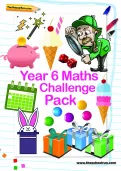
Is your child ready to be stretched?
- Download Challenge Packs for your child
- Maths & English packs for each school year
- Encourage your child to work at a greater depth
Maths
As with literacy, your child could try participating in mathematical games which require solving or creating puzzles. Check out our guide to games-based maths apps, and how to use maths puzzles with your child.
They could enter national competitions, tournaments or maths quizzes, such as the Primary Maths Challenge for Years 5 and 6. You could even ask your child’s school to set up a maths club.
Modern foreign languages
Provide as many opportunities as possible for your child to practise speaking, listening to, and writing in the language they are learning. Look for simple children's books written in the language they're interested in, or use apps to extend their knowledge.
Penpals and exchanges are excellent ways of immersing your child in their new language and they help to consolidate learning. You could also look for after-school language clubs.
If your child is exceptionally gifted, why not consider introducing a totally new language, like Mandarin?
History
Provide your child with a wealth of historical sources they can refer to, including books and apps.
Take them to historical sites, visit library archives and introduce them to primary sources, such as letters, journals and documents. Museums and art galleries are also great places to explore the past, and many run holiday workshops for keen kids.
A great project they could work on is tracing their family tree – it will extend their research abilities, while being a topic that is of personal interest to them.
Science
Make use of the scientific opportunities in and around the home. Encourage your child to observe pond life and behaviour patterns of local wildlife. They could set up feeding tables in the garden, plant seeds, or conduct weather experiments.
Cooking and baking are good springboards for scientific discussions, for example about how heat causes reactions in the ingredients. You can also set up some brilliant kitchen table science experiments for your child, or invest in some science sets that'll provide extra learning opportunities.
You could even try taking them to science lectures and science fairs to extend their learning, or pay a visit to one of the many amazing science museums around the UK.
